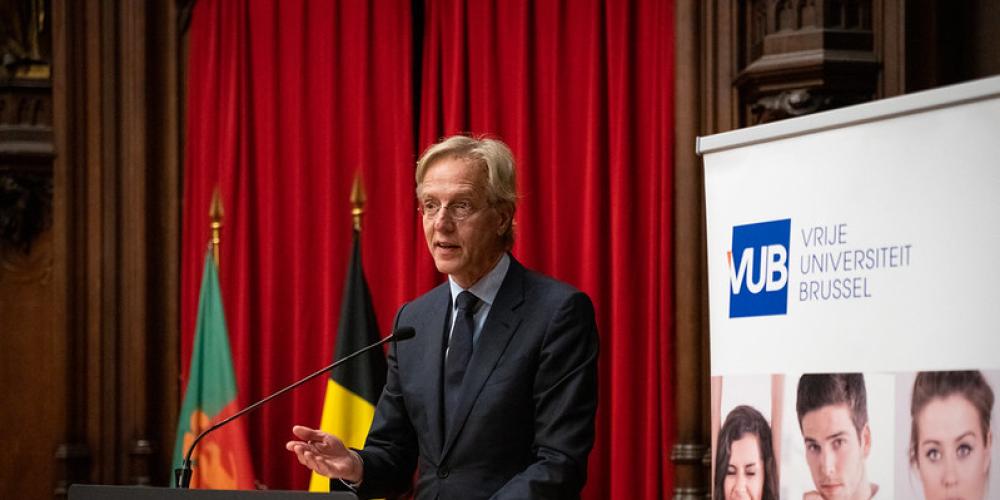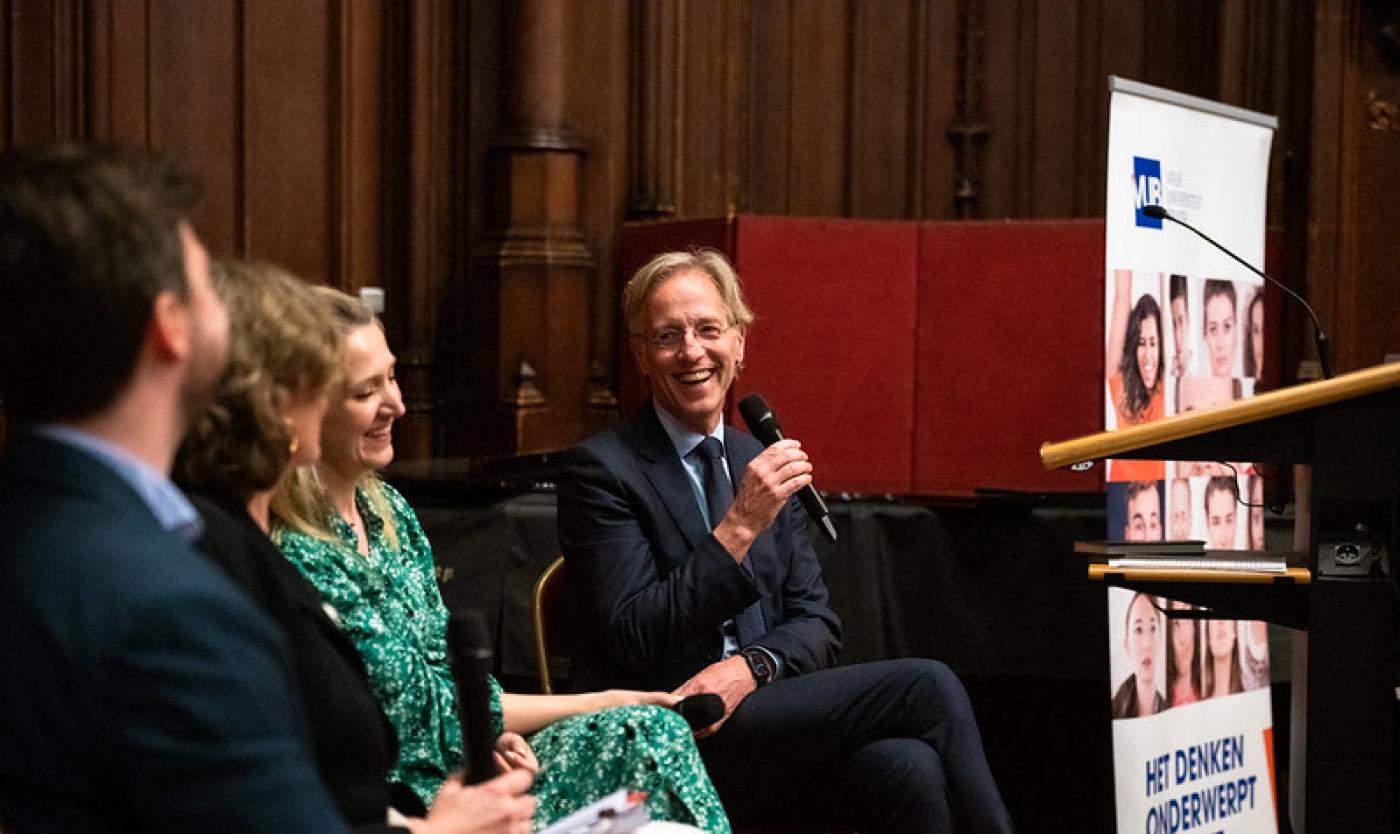
VUB hosted Dutch politician, physicist and honorary doctor Robbert Dijkgraaf in the Gothic Hall of Brussels City Hall on Monday 22 May. Alongside the presentation of the VUB book A Question of Truth at this third PACT event, Dijkgraaf spoke about truth, science and today’s resistance to science and authority.
Seeking the truth is human. Dutch physicist, science communicator, minister of education, culture and science, and honorary VUB doctor Robbert Dijkgraaf understood this when he learned at a young age that the genetic code of humans consists of a combination of only four bases. How could his mother have hidden this from him for so long?
In his speech, Dijkgraaf outlined his views on truth and science.
He believes the search for truth is essential in science. It is a driving force for researchers and is within every human being. But truth is not an absolute. It is constantly changing and evolving. Modern philosophy of science teaches us that truth depends on the scientific framework at a particular moment in history.

Science, Dijkgraaf argued, has brought great progress, but also great loss. The transition from traditional physics to quantum physics has increased our knowledge, but also brought new uncertainties. In the social sciences and humanities, new perspectives are sometimes met with resistance because they disrupt comfortable worldviews. But Dijkgraaf cited physicist Richard Feynman. “I can live with doubt and uncertainty and not knowing. I think it is much more interesting to live in ignorance than with answers that could be errors.”
Nevertheless, progress is absolute, he said with confidence. “Truth may be a difficult concept to grasp, but progress is nevertheless absolute. It is (almost) impossible to ‘un-know’ something.” The impact of modern biomedical science has doubled life expectancy, and we can now fight diseases that were once fatal. Recent developments, such as the rapid development of coronavirus vaccines, have shown the power of modern science.
Yet there is resistance to science. Some people see vaccines as unreliable and part of a conspiracy. Disinformation plays a role in this. Science has become increasingly intertwined with our daily lives, but also more complex. It risks becoming a “black box” that is difficult to understand. People are less likely to look for truth in science, especially at a time when we are inundated with information. “Meanwhile, science is more intertwined than ever with our everyday existence. It is close to our skin, deeply nestled in the capillaries of society, so it quickly becomes taken for granted.”
It’s therefore important that we think critically and develop our own filter to find the truth. The search for truth is an ongoing process of reflection and debate. We must continue to recognise the value of science and not forget its role in our lives. It is a shared responsibility to protect and promote truth and science. Dijkgraaf: “You drive away the unknown with knowledge. That is human nature.”
He devoted his closing remarks to Caroline Pauwels’ optimistic view of the future. “Let us continue her legacy of truth and science and work together to bring positive change to the world.”
A book to hold on to
This third PACT event was a textbook example of what VUB envisages with the Caroline Pauwels Academy of Critical Thinking: an evening for people who want to become free thinkers in the tradition of Kant through dialogue, self-reflection and self-examination. The evening was also dedicated to A Question of Truth, the new publication by the VUB think tank Poincaré. In 49 essays, authors and researchers explore the complicated nature of “truth” from the perspective of their specialisation. What is the point of truth? How much disinformation and distrust can a democracy tolerate? These are just two of the many interesting questions raised by the book.